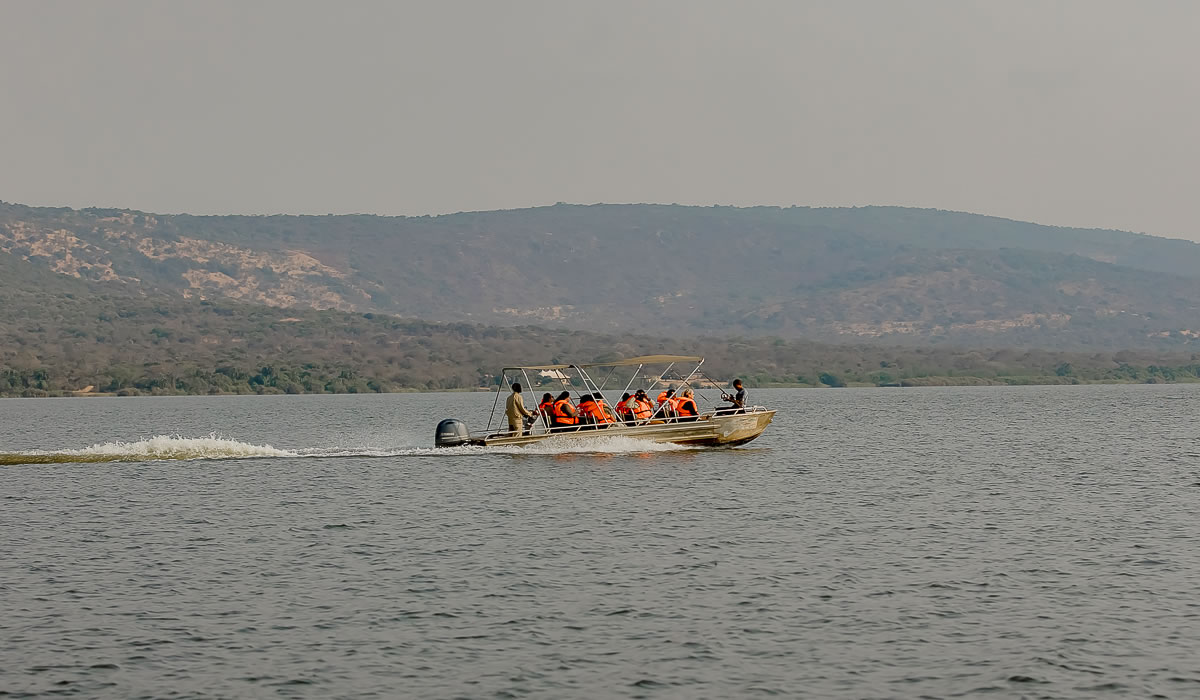Rwanda, known for its breathtaking mountainous terrain and rich biodiversity, is gaining popularity not only as a land of gorillas and green hills but also as a promising destination for water-based tourism. Though a landlocked country, Rwanda is home to numerous lakes and rivers that offer spectacular opportunities for boat cruise tours. These scenic waterways provide both recreational and educational experiences that appeal to a wide range of travelers from nature lovers and bird watchers to cultural explorers and honeymooners. Boat cruise tours in Rwanda are becoming a cornerstone of the country’s eco-tourism offerings, blending relaxation, wildlife observation, and cultural enrichment in a serene aquatic setting.

Overview of Boat Cruise Tourism in Rwanda
Boat cruise tours in Rwanda span various ecosystems, including inland lakes, volcanic crater lakes, and marsh-fringed rivers. They offer travelers a chance to explore the country from a unique perspective gliding through tranquil waters with views of lush hills, traditional fishing villages, and wildlife in their natural habitats. These tours cater to both domestic and international tourists and range from short scenic rides to longer, guided excursions with meals, entertainment, or nature interpretation included.
The development of water-based tourism aligns with Rwanda’s vision of sustainable eco-tourism. Many cruise activities are community-based or integrated with conservation programs, ensuring that tourism revenue contributes to local livelihoods and environmental protection. This responsible approach makes boat cruise tours in Rwanda not only enjoyable but also meaningful.
Top Boat Cruise Destinations in Rwanda
-
Lake Kivu
Lake Kivu is undoubtedly the crown jewel of Rwanda’s boat cruise destinations. Situated along the country’s western border with the Democratic Republic of Congo, it is one of Africa’s Great Lakes and the sixth-largest lake on the continent. Its vast expanse of 2,700 square kilometers is dotted with idyllic islands, bordered by verdant hills and lively lakeside towns.
Boat cruises on Lake Kivu are available from several towns, primarily Rubavu (Gisenyi) in the north, Karongi (Kibuye) in the center, and Rusizi (Cyangugu) in the south. Each location offers distinct experiences:
- Rubavu: Located near the Virunga Volcanoes, this lakeside resort town is ideal for short sunset cruises and romantic getaways. Boat trips from Rubavu often include visits to hot springs, coffee plantations along the shore, and lively fish markets.
- Karongi: Known for its scenic beauty and archipelago of forested islands, Karongi is perfect for half-day or full-day cruises. Popular stops include Napoleon Island, famous for its fruit bat colonies, and Amahoro Island (Island of Peace), a tranquil picnic spot. Some tours even include kayaking or stand-up paddleboarding.
- Rusizi: Near Nyungwe Forest National Park, this area offers quieter, less commercialized cruises ideal for bird watchers and serenity seekers. It’s also a great jumping-off point for exploring the Congo Nile Trail from a different vantage point.
Cruises on Lake Kivu range from simple wooden boats piloted by local fishermen to luxurious private motorboats with canopies, refreshments, and guides. Common activities on these cruises include swimming in the lake’s methane-free waters, bird watching, visiting fishing villages, and enjoying panoramic views of Rwanda’s undulating landscape.
-
Akagera National Park – Lake Ihema
Lake Ihema, located within Akagera National Park in eastern Rwanda, is a prime destination for wildlife-focused boat cruises. It is the largest lake in the park and sits amidst a network of rivers and wetlands that form part of the Akagera River system. Unlike the placid experience of Lake Kivu, a cruise on Lake Ihema immerses visitors in a dynamic ecosystem teeming with wildlife.
During a boat cruise on Lake Ihema, guests can expect to encounter hippos, Nile crocodiles, and a wide array of water birds, including the rare Shoebill Stork, African Fish Eagle, Cormorants, and Kingfishers. Elephants and buffaloes can sometimes be spotted along the shores, particularly during dry seasons when animals congregate near the water.
The Rwanda Development Board (RDB) operates guided boat cruises on Lake Ihema that typically last 1 to 2 hours. These cruises are offered at scheduled times throughout the day, with early morning and late afternoon trips providing the best wildlife viewing and photography conditions due to the softer lighting and heightened animal activity.
-
Twin Lakes: Lake Burera and Lake Ruhondo
Nestled in the foothills of the Virunga Mountains in northern Rwanda, near the town of Musanze, Lake Burera and Lake Ruhondo are volcanic crater lakes known for their tranquil beauty and dramatic scenery. Separated by a narrow strip of land, these lakes offer intimate boat tours in a rustic and untouched setting.
Boat cruises here are often operated by local cooperatives using traditional dugout canoes or small motorboats. These trips provide a peaceful escape and a chance to observe the lives of rural Rwandan communities who depend on the lakes for fishing and agriculture. Bird watchers will appreciate the presence of species such as the Grey-crowned Crane, African Jacana, and various herons and egrets.
In addition to the birdlife and scenic landscapes, some tours include cultural experiences such as traditional music performances or visits to local craft markets. The proximity of the lakes to Volcanoes National Park also makes them a popular stop for tourists combining gorilla trekking with a relaxing day on the water.
-
Nyabarongo River Wetlands
The Nyabarongo River, Rwanda’s longest river, flows through extensive wetlands that are vital for biodiversity and water regulation. The wetlands, especially near the Kigali and Bugesera regions, are rich in birdlife and offer excellent opportunities for canoeing and small boat excursions.
Although not as developed for tourism as Lake Kivu or Akagera, local eco-tourism initiatives have begun offering birding-focused cruises in this area. These tours are ideal for ornithologists and eco-tourists interested in spotting the Papyrus Gonolek, White-winged Swamp Warbler, and various migratory waterfowl.
These cruises also present educational components, emphasizing wetland conservation and sustainable development. Guided by environmental educators or local conservationists, these tours add value through insight into the importance of Rwanda’s aquatic ecosystems.
Types of Boat Cruises Available
Boat cruise tours in Rwanda vary in terms of length, luxury, and focus. Common options include:
- Scenic and Sunset Cruises: Popular on Lake Kivu, these tours emphasize relaxation and sightseeing, often with refreshments and snacks included.
- Wildlife and Bird Watching Cruises: Found primarily in Akagera and the Nyabarongo wetlands, these are led by guides with expertise in flora and fauna.
- Cultural Cruises: These include stops at fishing villages, traditional performance sites, and island communities.
- Private and Romantic Cruises: Customizable tours for couples or small groups, often featuring meals, wine, or music onboard.
- Adventure and Sport Cruises: Incorporate kayaking, canoeing, or stand-up paddleboarding, especially around Karongi and Rubavu.
Tour Operators and Booking
Several reputable tour operators offer boat cruise experiences in Rwanda. These range from luxury travel agencies catering to high-end tourists to local cooperatives that focus on community empowerment. Booking can often be done through travel agencies, online platforms, or directly at local tourism centers in towns like Rubavu and Karongi.
Prices vary depending on the duration, boat type, and services included. A basic community-led canoe ride might cost around $10–$20 per person, while a luxury private cruise with meals could exceed $100 per person. Most national park-related cruises, such as those in Akagera, are booked through the Rwanda Development Board or affiliated tour operators.
Safety and Environmental Considerations
Rwanda’s tourism authorities place a strong emphasis on safety and environmental responsibility. Life jackets are typically provided on all organized tours, and boats are regularly maintained and inspected. Guides are trained in emergency response and environmental conservation principles.
Environmental protection is integral to water-based tourism in Rwanda. Tour operators are encouraged to minimize noise pollution, avoid single-use plastics, and ensure waste disposal does not harm aquatic ecosystems. Travelers are advised to follow the “leave no trace” principle, taking only memories and leaving only footprints (or ripples).
Economic and Community Impact
Boat cruise tourism has created employment and income-generating opportunities for communities living along Rwanda’s water bodies. From boat builders and guides to artisans and hospitality providers, many locals benefit from increased tourism activity. In areas like Karongi and Lake Burera, cooperatives have formed to provide integrated experiences that combine boating with storytelling, dance, or local cuisine.
The Rwandan government continues to promote community-based tourism as a strategy to reduce rural poverty and reinforce conservation. Revenue-sharing schemes and training programs help ensure that the economic benefits of boat cruise tourism are widely distributed and sustainable.
Boat cruise tours in Rwanda are a growing attraction that showcase the country’s scenic beauty, ecological richness, and cultural diversity from an entirely new perspective. Whether drifting through the vast calm of Lake Kivu, scanning the reed beds of Lake Ihema for exotic birds, or paddling between volcanic islands, visitors are sure to find these experiences both enriching and relaxing.
More than just recreational rides, these cruises are an invitation to connect with Rwanda’s landscapes, wildlife, and people in a way that is immersive, serene, and deeply memorable. As infrastructure improves and awareness grows, boat cruise tourism is poised to become a central pillar of Rwanda’s sustainable travel industry offering not just journeys across water, but bridges between cultures, ecosystems, and generations.

